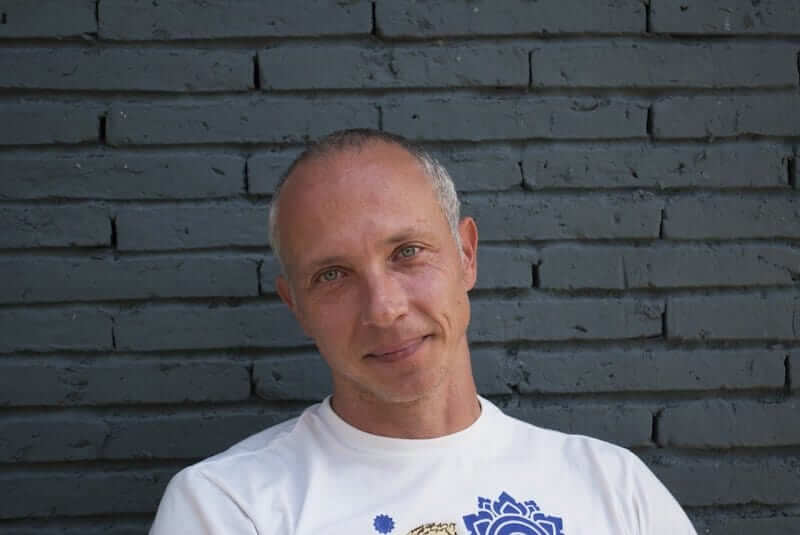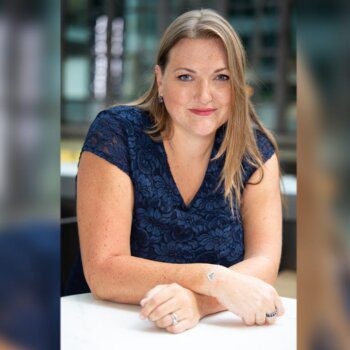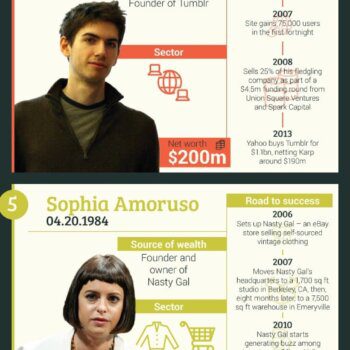Where did the idea for YogaTrail come from?
My wife and I discovered yoga in India in 2008. At the time, for various reasons, we did quite a bit of traveling, and so we ended up sampling a huge assortment of yoga. The diversity of yoga is astounding, with countless different styles and flavors, and all manner of teachers and venues. Experiencing all this variety was great, but we also saw that there was a problem to be solved.
The word ‘yoga’ can mean totally different things to different people. For some, it can mean athletic contortions in sauna-like temperatures, to others ‘yoga’ suggests sitting cross-legged in front of a candle for an hour while chanting mantras.
We discovered that it was very difficult to find the “right” kind of yoga using the web – which gave us the idea for YogaTrail: a site where yogis can share their experiences and opinion, and help each other find their yoga, whether they’re looking for places to practice, people to practice with, teachers or resources to learn from, or just conversations.
Could you walk us through the process of starting up YogaTrail?
I was teaching physics at the local university, and sat in on a class called “Web Entrepreneurship”, because we were already thinking about YogaTrail and I wanted to learn. At the end of the course, the students had to pitch an idea for a web-based business to “investors”, where people who are active in the web space in Chiang Mai volunteered to judge the presentations. I got to play along and present a pitch, which I thought would be good practice.
Well, it happened that Sven Ernst (co-founder #3) was in that group of pretend investors. Sven is the director of the Asian branch of Buzzwoo!, a German development agency. Apparently, they had been looking for something to build on their own (they only did client work), and Sven liked our YogaTrail presentation a lot – so much so that we all had a meeting the following day and founded YogaTrail 3 days after that. Buzzwoo! handled the technical site development, Alex and I handled all the content, PR, marketing, customer service, business development, and much of the design of the website.
How has it been like operating YogaTrail?
It’s been very intense, often difficult, and sometimes quite tumultuous. Generally draining, but rewarding at the same time.
I typically put in 60 to 80 hours of work per week – and there’s always the feeling that things are moving too slow, that something that should take x days to accomplish ends up taking 5x.
I’m finding that building a social website is in many ways more difficult than building a nuclear fusion reactor. Just the technical aspects are much more involved than I had imagined at the outset – the site has to work across all browsers and mobile devices and operating systems, for example. When something doesn’t work on some browser, it can take a while to find out, even with all the testing that we do.
And then there are the users… in science and engineering, things are very straight-forward: apply an electric or magnetic field, and electrons move in a predictable fashion, for example. But humans are totally mysterious beings… how they react to some features on the site or even just the color of a button can be very surprising. Trying to figure out what people around the world want, what they will pay for, and generally what they’re thinking when they use a website is very challenging, although taking a scientific approach (testing and measuring) has been very helpful.
What was the most difficult part of it all?
It’s finding and managing people. The first developer we hired seemed to be very competent and engaged with the project, but just a few months after we got started he had “difficulties” and simply quit. That left us with a half developed site, and it was difficult to find someone who could get into the code, understand it, and take over from there. It was essentially like starting over.
We searched near and far and were lucky enough to find a guy who was up to the task and was willing to relocate to Chiang Mai from Bangkok.
Luckily we found Jordan, our current lead developer who took things over and managed to dig into existing code, so we were able to launch the site with some delay.
What kind of reception did you meet?
YogaTrail has been received very well by the people out there, and we’re relieved about that. The yoga community is a unique crowd, partly because of their wild diversity, ranging from very esoteric people seeking enlightenment in remote Ashrams to high powered executives that use yoga to de-stress before lunch.
We were very careful to brand YogaTrail as neutrally as possible, and to appeal to the entire spectrum of yogis. Before we launched the site, we worked hard to build a big following on Facebook and social media, and with our blog. So on the day we launched the website, we were able to hit the ground running and invite 30,000 people who had signed up for an invite.
Do you face a lot of competition in this industry?
We actually see a new yoga directory of some sort popping up about once per week, and many of these seem to be inspired by us. So far, none of the competition sites are credible or they have serious shortcomings (either because they only cover a small region or city, or because they don’t provide a great interface, or they’re the kind of site that won’t be embraced by the spectrum of yogis out there).
Somewhat troubling, we also see some competitors copying most of what we do within a few months of when we do it. For example, we built a nifty Facebook app that’s a collection of yoga image galleries, shared across thousands of yoga Facebook pages. About 6 weeks after we launched it, there were three other versions of the same thing, with exactly the same design and functionality… one guy even used the same name for his app! On the upside, I guess this means we do somethings right…
Our strategy: we simply work hard to keep ahead of anybody else. We’re relatively secure in the knowledge that building and maintaining a community-based yoga directory is a lot of work and not many competitors will be up to the task.
What can you tell us about the yoga industry?
The yoga industry is peculiar because it’s grown to become a huge industry in a world where a word like “money” and “profit” can be dirty words, due to the spiritual lifestyle aspects that are associated with yoga. We’ve learned that many yoga professionals have trouble with marketing and managing themselves as businesses, and making money is often not why they became yoga instructors.
On the other hand, yoga is now a $20B market, and there are many yoga professionals and organizations out there that may cloak themselves in “mindful” and non-commercial appearances, but who in reality are all about making money and profit.
Other insight: there have been a few yoga chains that try to establish dominant positions in the market, but they still only account for about 5% of the yoga places collectively – we think the world of yoga is such that a “one size fits all” yoga brand will never become a dominant factor in the space.
What are your future plans for Yoga Trail?
Long term, we want to become the place where every yoga professional in the world has a profile on YogaTrail (as is the case with hotels and TripAdvisor, for example). We also aim to be the website where a yogi goes to check what’s happening in their yoga world on a daily or weekly basis.
Beyond that, we have many ideas and we’re in the process of figuring out what the future YogaTrail might look like. The next thing on our priority list is to implement a feature where teachers and studios are able to add their class schedules. This will be very useful for every yogi out there.
If you could start all over again, would you change anything about your approach?
We would choose a different web development platform. Although what we’re working with is very powerful and in principle pretty well suited for a site like YogaTrail (Drupal), it’s very difficult to find developers here in Asia that are proficient in Drupal.
In general, I would be much more careful to make the success of the business dependent on any one person – including myself. Of course, that’s not always possible.
What do you think about startups in Asia?
From what I can see, South East Asia in particular is a region that’s bustling with lots of young people who have drive, ambition, and a very healthy entrepreneurial spirit. The general optimism and economic outlook in the area as compared with Europe and the United States is tremendous.
Where we are in Chiang Mai, we do suffer a little from being somewhat isolated from entrepreneurial hot spots like Bangkok or Singapore. So there aren’t many VC’s here yet. But even here, there are co-working spaces popping up everywhere, and the infrastructure and talent pool are already here.
What are some personal principles or personal values that guide you and your career?
Some traits and values that I hold in very high esteem and that are integral to the way that I work and do business:
- always do what you say you’re going to do
- always be on time
- not everything you do has to be done to gain an advantage, and being honest, helpful, and fair is more likely to lead to long-term success
- there are very few people, so every employee is a big part of the company,
- there’s no money to waste on unproductive or disruptive assets that don’t contribute 100% to the success of the company, and
- much of the product and the work hasn’t been clearly defined yet, so an open mind and willingness to learn new things is essential
The key, I think, is to retain your optimism, to never loose hope or give up in the face of adversity. Of course, many successful entrepreneurs have said this before, but it’s true:
Starting a business is very difficult, and along the way you’ll meet scores of discouraging people that bring negativity, you’ll face countless disappointments and major or minor set backs, and you’ll encounter unexpected disasters and seemingly insurmountable obstacles… things that would make any normal person throw in the towel and call it quits. Accepting set backs and disasters as a normal part of any entrepreneurial venture while keeping your spirits high is the key to success.
































